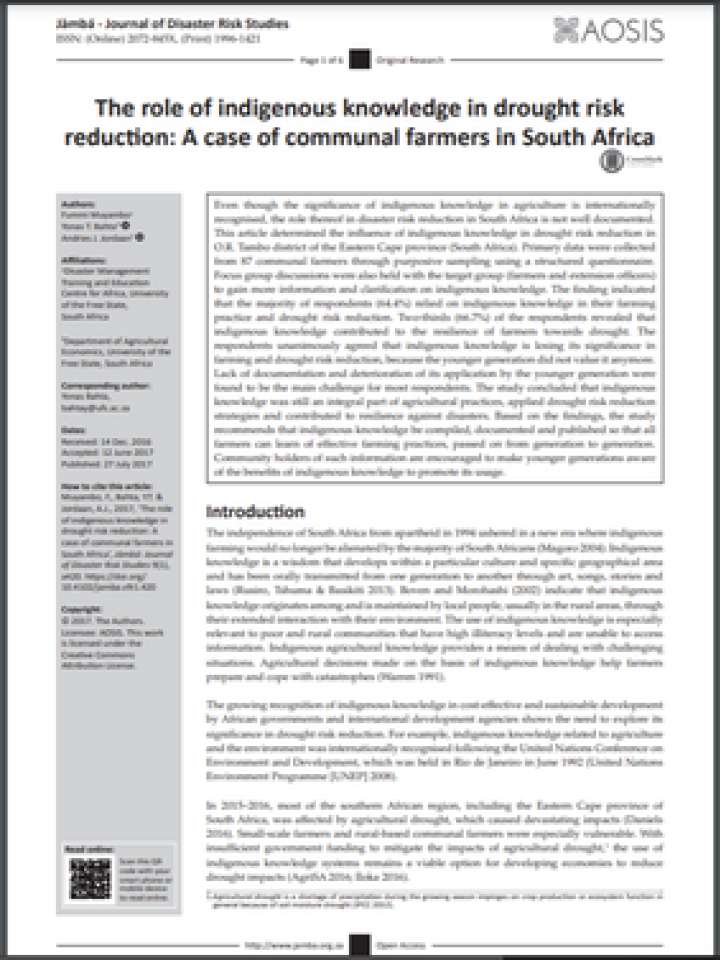The role of indigenous knowledge in drought risk reduction: A case of communal farmers in South Africa
This article determined the influence of indigenous knowledge in drought risk reduction in O.R. Tambo district of the Eastern Cape province (South Africa). Even though the significance of indigenous knowledge in agriculture is internationally recognised, the role thereof in disaster risk reduction in South Africa is not well documented. The growing recognition of indigenous knowledge in cost-effective and sustainable development by African governments and international development agencies shows the need to explore its significance in drought risk reduction.
The findings indicated that the majority of respondents relied on indigenous knowledge in their farming practice and drought risk reduction. Two-thirds of the respondents revealed that indigenous knowledge contributed to the resilience of farmers towards drought. The respondents unanimously agreed that indigenous knowledge is losing its significance in farming and drought risk reduction, because the younger generation did not value it anymore. Lack of documentation and deterioration of its application by the younger generation were found to be the main challenge for most respondents. The study concluded that indigenous knowledge was still an integral part of agricultural practices, applied drought risk reduction strategies and contributed to resilience against disasters. Based on the findings, the study recommends that indigenous knowledge be compiled, documented and published so that all farmers can learn of effective farming practices, passed on from generation to generation. Community holders of such information are encouraged to make younger generations aware of the benefits of indigenous knowledge to promote its usage.
Explore further
